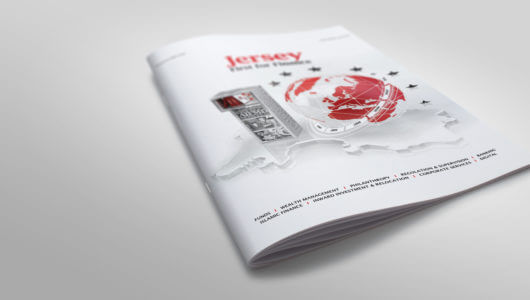Some choose to donate to well-known, public charities whilst, for others, the creation of a new structure is more appropriate. This might, for example, be because they:
- identify a particular cause that really matters to them which is not being focused on by established charities, or is something that they think could be advanced more effectively with the benefit of their business skills and experience; or
- would like to establish an environment in which the next generation can be introduced to the family’s wealth and values, or in which the members of an extended and diverse family can be united around shared goals and interests; or
- have particular views or concerns in relation to the public profile attaching to their philanthropy.
Why Jersey?
Jersey has an established – and growing – reputation as a location of choice for those international families who decide to create new philanthropic wealth structures.
As a mature and well-respected jurisdiction, with a depth and breadth of experience amongst its professional advisers which has been developed over more than 50 years, Jersey provides stability and a robust regulatory regime from within a readily accessible central time zone.
Jersey law trusts have been used for philanthropy for many years and were joined by the Jersey foundation in 2009. Recognising the increasing geographical reach of the Island and that some families from civil law and other backgrounds are more familiar with foundations than trusts, the Foundations (Jersey) Law 2009 introduced the foundation as a new form of legal entity (without shareholders or any other form of owners) which holds assets and enters into contracts in its own name. Jersey foundations have become established as a vehicle of choice for philanthropy, with approximately one third of all foundations having philanthropic purposes. The Charities (Jersey) Law 2014 (the ‘Charities Law’) complements Jersey’s offering in relation to trusts and foundations by providing an innovative system of charity registration.
Flexibility of structure
Jersey trusts and foundations are both very flexible and can be tailored to each family’s own requirements. This means that:
- the particular cause that a family has identified can be pursued, whether it falls within legal definitions of charity or is more broadly benevolent or altruistic but not technically charitable; and
- family members can be involved with the structure on an ongoing basis: with a foundation, for example:
- an entrepreneur might play an active role as a council member (similar to a company director), working to ensure that the foundation achieves the goals that he or she has in mind, or might become its guardian (helping to ensure that the foundation’s objects are carried out);
- younger family members might be given roles designed to introduce them to the family’s wealth and values at appropriate ages; or
- individual branches of a large family might appoint representatives onto a giving committee, allowing them to share and agree upon ideas as to the distribution of the foundation’s property.
Public profile
Understanding that families have individual approaches to philanthropy and that some are keen to publicise their giving whilst others prefer to remain anonymous, Jersey offers a choice in relation to public profile.
From May 2018, the Charities Law offers two categories of charity registration, with registration being voluntary (albeit relevant in determining entitlement to the full range of Jersey’s charitable tax reliefs and to the use of the term ‘charity’).
The first category is registration as a charity on the general section and is intended for those seeking to raise funds from the public. In order to protect public trust and confidence in registered charities, the general rule is that all of the material on this section will be publicly available, so that potential donors and volunteers will have access to relevant information to inform their decisions.
For those not wishing to publicise their giving initiatives, the use of Jersey trusts or foundations without the addition of a charity registration will be the preferred approach. There is no public registration of trusts in Jersey and, whilst a foundation is a registered entity, only a certain amount of information is publicly available: including the foundation’s name and registered number, the name and business address of its qualified (regulated) council member and its charter but not its regulations, which can therefore be drafted freely, on a bespoke basis, to include details of the foundation’s purposes and to reflect individual requirements.
Trusts and foundations established in Jersey by international philanthropists are typically funded with family moneys rather than by public donations and it is likely that many (if not most) of these – whether existing or newly created – will operate without a charity registration. Those which are not registered as charities will still qualify for exemption from Jersey income tax upon satisfaction of certain conditions – albeit not the other Jersey charitable tax reliefs – plus tax neutrality is preserved for structures with no beneficiaries and no income deriving from land and buildings in Jersey.
However, for some international families a formal registration (or ‘label’) as a charity is required and the second category of registration offered by the Charities Law represents a very attractive option. Designed for those structures which do not seek public donations and instead rely upon family moneys, registration on this section will result in only a limited amount of information – including the charity’s registered number but not its name – being placed onto the public register. This ability to maintain a lower profile in relation to their giving initiatives is important for many families, as also is the fact that the Charity Commissioner can withhold information from the public register (for general as well as restricted section registrations) where there are concerns in relation to the safety or security of property or individuals.
Centre of choice
The ability to create structures tailored to allow families to make the difference that they want to make in the way they want to make it and the range of choices available in relation to public profile, combine to position Jersey as a centre of choice for international philanthropy.
Zillah Howard, Partner, Bedell Cristin.
With extensive experience in international private client work, Zillah provides Jersey law advice in relation to trusts, foundations and philanthropy and works with families, professional trustees and leading law firms on wealth structuring and estate planning. Her practice includes the establishment, ongoing operation and re-organisation of complex, bespoke and high value structures and the use of settlor reserved or granted powers and private trust companies.
Zillah is an active member of Jersey Finance working groups which help to shape trusts, foundations and charities law in Jersey.


